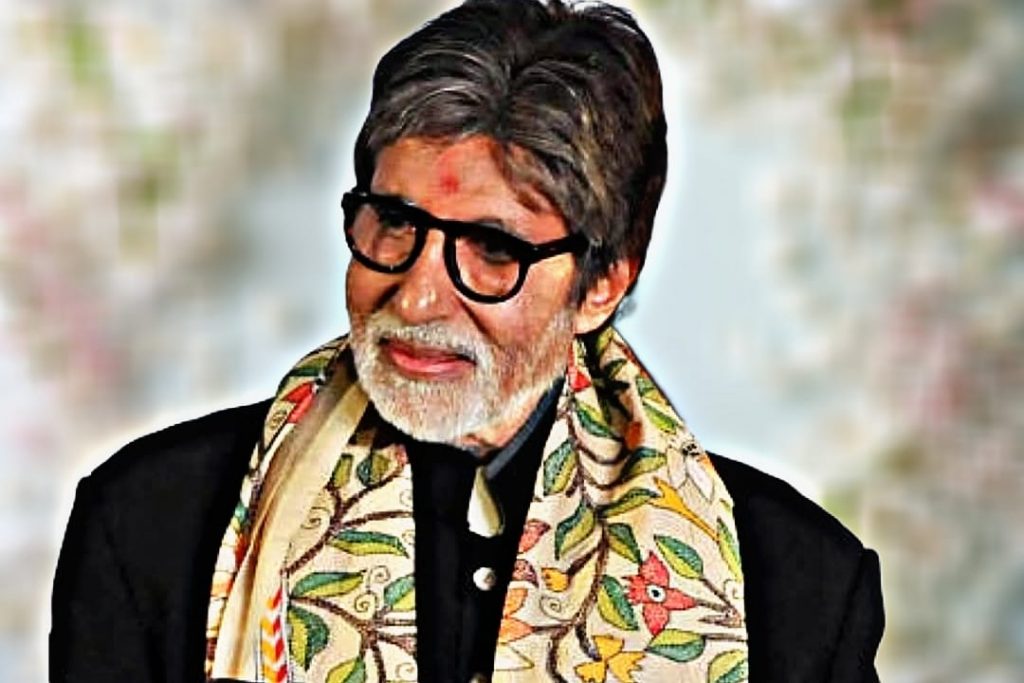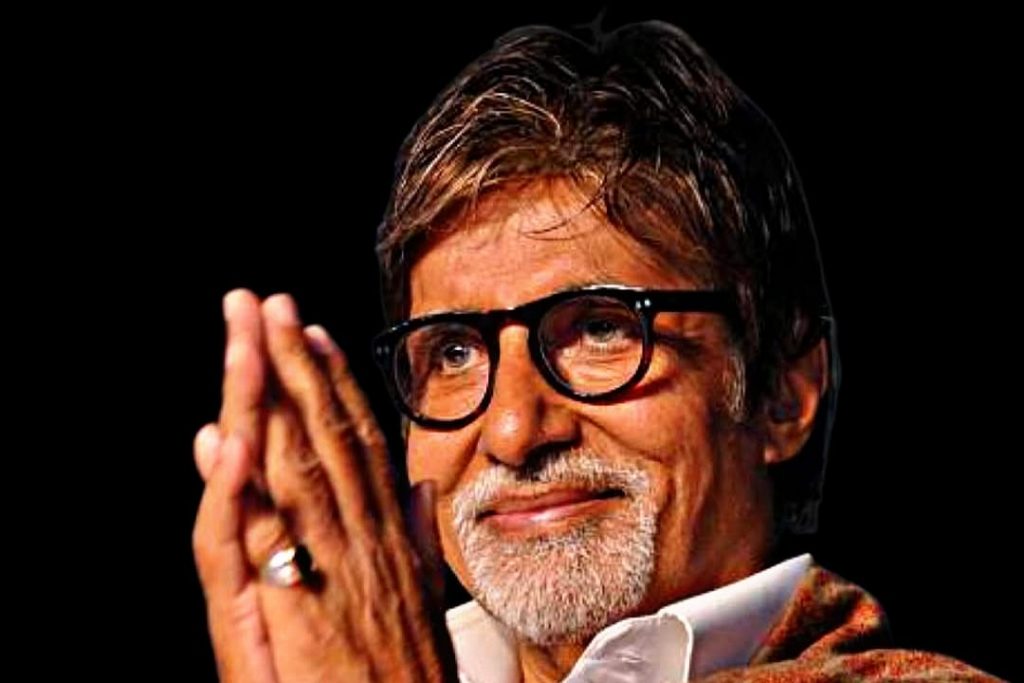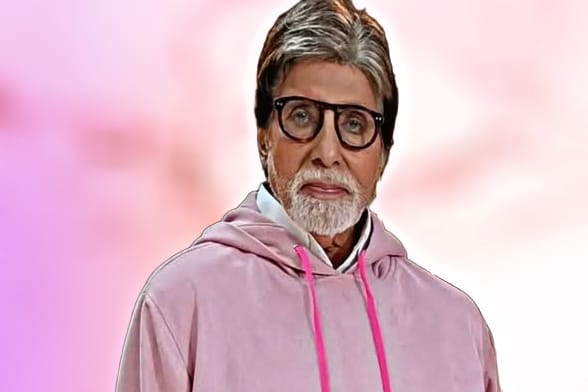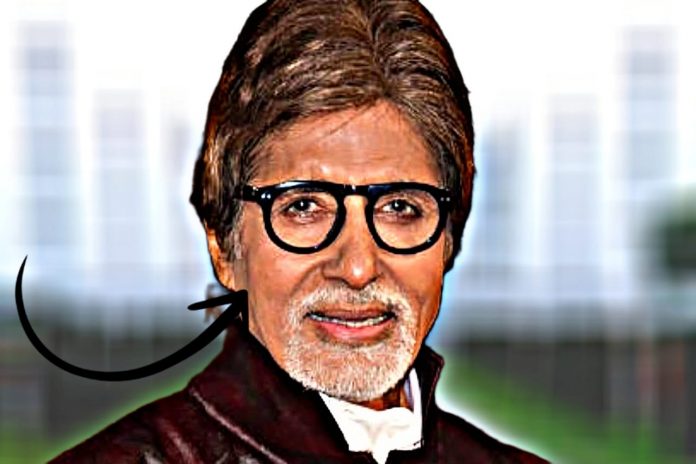Amitabh Bachchan, often referred to as the “Shahenshah of Bollywood,” “Big B,” and the “Star of the Millennium,” is a name synonymous with the Indian film industry. For over five decades, Bachchan’s indomitable presence has captivated millions worldwide. His multifaceted career, remarkable talent, and unmatched charisma have made him an iconic figure not just in India, but across the globe.
From playing the quintessential angry young man to taking on diverse roles in films of various genres, Amitabh Bachchan has redefined what it means to be a cinematic legend. In this article, we will take a deep dive into the life, career, and legacy of Amitabh Bachchan, exploring his rise to fame, his impact on Indian cinema, and his continued relevance in the modern-day film industry.
Early Life and Background

Amitabh Bachchan was born on October 11, 1942, in Allahabad (now Prayagraj), Uttar Pradesh, to Harivansh Rai Bachchan, a renowned poet, and Teji Bachchan. His family had a significant cultural influence, and Amitabh grew up surrounded by the world of literature and the arts. Although his father was a celebrated poet, Amitabh Bachchan had no initial inclination towards acting. Instead, he pursued his education at the Sherwood College in Nainital and later went on to study at Delhi University’s Kirori Mal College, where he earned a degree in Science.
During his college years, Bachchan was actively involved in theater and participated in various plays, but it wasn’t until his move to Mumbai that his career in films began to take shape. He had an early stint as an announcer at All India Radio, a job that he found difficult but one that shaped his public speaking skills—skills that would later serve him well in his acting career.
Amitabh Bachchan Rise to Stardom: The Early Years
Amitabh Bachchan made his acting debut in 1969 with the film Saat Hindustani, directed by Khwaja Ahmad Abbas. Despite receiving a positive reception for his role, the film did not perform well at the box office. However, this did not deter Bachchan, who continued his journey in Bollywood with a string of smaller roles. In the early 1970s, Bachchan’s career was on the rise, but it was the film Zanjeer (1973) that truly made him a household name.
Directed by Prakash Mehra, Zanjeer introduced Amitabh Bachchan as the “Angry Young Man” of Indian cinema. His portrayal of the tough, rebellious police officer Vijay earned him widespread acclaim and changed the trajectory of his career. The film became a major hit, and Bachchan’s portrayal of a brooding anti-hero struck a chord with the masses. His intense on-screen presence, coupled with his deep baritone voice, became his signature, and he was soon dubbed the voice of the common man.
The 1970s and 1980s: A New Era in Bollywood

The 1970s and 1980s were a golden period for Amitabh Bachchan. After the success of Zanjeer, he went on to deliver a string of blockbuster films such as Deewaar (1975), Sholay (1975), Kabhie Kabhie (1976), Trishul (1978), and Don (1978). Each of these films solidified his reputation as a versatile actor capable of taking on a wide range of roles—from a heroic figure to a complex anti-hero.
Sholay is arguably one of the most iconic films in the history of Indian cinema. Directed by Ramesh Sippy, the film is a quintessential action-adventure that brought together a star-studded ensemble cast, including Dharmendra, Hema Malini, and Amjad Khan. Amitabh Bachchan’s portrayal of Jai, a quiet yet intense character, remains one of his most memorable performances. His chemistry with Dharmendra, who played the role of Veeru, became legendary, and the film’s dialogues and scenes have been etched in the minds of audiences forever.
In the 1980s, Bachchan further cemented his status as a superstar with films like Shakti (1982), Silsila (1981), and Namak Halaal (1982). His ability to transition from action-packed thrillers to intense dramas and light-hearted comedies proved his acting mettle. However, it was his collaboration with filmmaker Yash Chopra in Silsila that saw him pair with Rekha, creating one of Bollywood’s most talked-about off-screen and on-screen pairs.
Bachchan’s fame peaked in the 1980s, but it wasn’t without its challenges. In 1982, while shooting for Coolie, he suffered a near-fatal accident that left the nation in shock. His recovery and return to the silver screen were nothing short of a miracle, and it solidified his status as an invincible figure in the Indian film industry.
The 1990s: Reinvention and Continued Success
As the 1990s approached, Amitabh Bachchan faced a period of transition. The 1990s saw a shift in Bollywood’s cinematic landscape with younger stars like Aamir Khan, Salman Khan, and Shah Rukh Khan taking center stage. During this time, Bachchan struggled to maintain his status as the undisputed king of Bollywood.
However, Amitabh Bachchan’s resilience and ability to adapt were remarkable. He began to explore a range of roles that were more suited to his age and maturity. Films like Maqbool (1992), Shahenshah (1988), and Agneepath (1990) were big hits, but it was his role in Meri Jung (1985) and later, Silsila (1981) that showcased his ability to break barriers in terms of romantic relationships.
By the late 1990s, Amitabh Bachchan had found a new avenue in the world of television. His association with the popular game show Kaun Banega Crorepati (KBC) in 2000 turned out to be a watershed moment in his career. The show’s unprecedented success not only gave Bachchan a new lease on life but also re-established him as the most influential figure in Indian entertainment. The show’s format, coupled with Bachchan’s unmatched hosting skills, resonated with audiences, and his popularity soared to new heights.
The 2000s and Beyond: Reinventing the Icon

The 2000s saw a renewed Amitabh Bachchan, with his choice of roles and his dynamic performances taking Indian cinema to newer heights. Films like Kabhi Alvida Naa Kehna (2006), Baghban (2003), Black (2005), and Sarkar (2005) showcased Bachchan’s versatility and ability to reinvent himself with every passing decade.
Black, directed by Sanjay Leela Bhansali, was a particularly challenging film for Bachchan, where he portrayed a teacher guiding a deaf and blind girl (played by Rani Mukerji). The film was a massive success and earned Bachchan numerous awards for his poignant and powerful performance.
In Sarkar and its sequels, Amitabh Bachchan portrayed a powerful patriarch, a role inspired by the legendary don of Mumbai, the late Bal Thackeray. These films marked his return to the intense roles he had become famous for in his early years. His performances in these films proved that age was no barrier to his craft.
Bollywood’s Golden Era
Even as the new millennium progressed, Amitabh Bachchan remained relevant and influential. He continued to win accolades and award nominations for his diverse performances. He was also recognized for his contribution to the Indian film industry, with honors like the Padma Shri (1984), Padma Bhushan (2015), and the Padma Vibhushan (2018) being bestowed upon him.
In recent years, Bachchan has ventured into web series with Breathe: Into the Shadows (2020), proving that his ability to adapt to changing media formats remains unmatched. His presence in films such as Paa (2009), Shamitabh (2015), and Pink (2016) showed that he was still willing to push boundaries and take on experimental roles that challenged his acting range.
Amitabh Bachchan’s Legacy and Influence
Amitabh Bachchan’s legacy goes beyond his cinematic achievements. He has shaped the very fabric of Bollywood, influencing generations of actors and filmmakers. His influence is not confined to just films; Bachchan’s impact on the culture, politics, and society of India has been profound.
He has been a voice for social causes, advocating for various humanitarian issues and speaking on issues such as education, sanitation, and mental health. Through his immense popularity and goodwill, Bachchan has raised awareness about various causes, earning him the title of the “Most Influential Indian” in several global polls.
His contribution to Indian cinema was officially recognized in 2011 when the Academy of Motion Picture Arts and Sciences awarded him an Honorary Doctorate, an acknowledgment of his lifetime achievement in the world of film.
Amitabh Bachchan’s Impact on Global Cinema
Amitabh Bachchan is not just a Bollywood superstar; he is a global cinematic icon. His fame transcends the boundaries of India and has made him a well-respected figure in the international film community. With his global fan following, Bachchan has appeared in international films, collaborated with international filmmakers, and even represented India at various prestigious film festivals worldwide.
His performances have influenced several contemporary global filmmakers, and his signature style has been emulated by actors from different parts of the world. Even in Hollywood, his voice is highly regarded, as seen when he voiced characters in films like The Great Gatsby (2013) and appeared in The Pink Panther 2 (2009).
Conclusion
Amitabh Bachchan’s journey from a struggling actor to a global icon is a testament to his talent, resilience, and unmatched work ethic. From the angry young man of the 1970s to the seasoned performer of today, Bachchan has continually evolved, reinventing himself with every role he plays.
As of today, Amitabh Bachchan remains a towering figure in the world of Indian cinema. His contributions have shaped Bollywood and have left an indelible mark on the global cinematic landscape. He continues to inspire millions of people worldwide, and his legacy is one that will live on for generations to come.
Whether on the silver screen, on television, or through his off-screen endeavors, Bachchan’s influence is undeniable, and he will forever be remembered as the true Shahenshah of Indian cinema.

